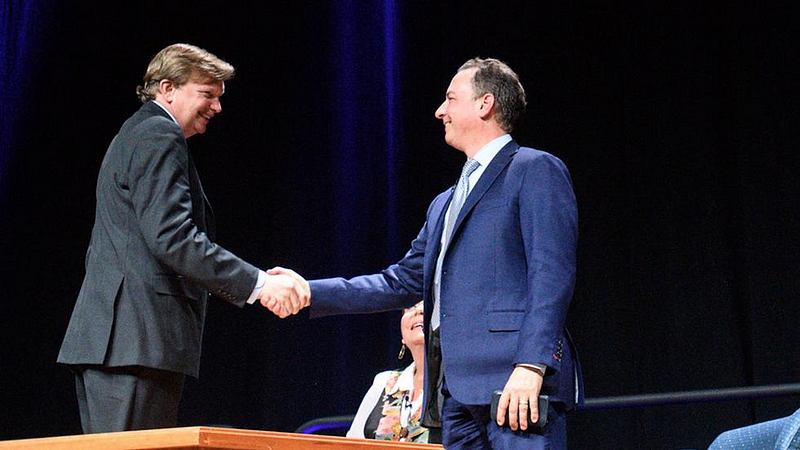
The Common Ground Series has been brought to Hamilton College in order to facilitate quality conversation between two noted speakers from differing political parties. Karl Rove, Jim Messina, and a host of other prominent names have come to the Hill in the brief time this program has existed. The purpose of this event, according to the administration, is for the two speakers to find common ground and demonstrate civil discourse during a public conversation on political topics. With this in mind, I ask those who welcome these prominent guests to campus with signs and protests, why?
Hamilton College is a liberal campus. There is no denying that. I also identify as a liberal, and many of the conservative names that have come through this campus possess views that I vehemently disagree with. I understand why people don’t particularly like some of the invited speakers; however, I can’t understand why this warrants students protesting their arrival. Again, the point of the series is for the two differing ideologies to find common ground on certain issues, and these protests seem to go against the very idea of finding commonality in the midst of a crucial time in a rather gloomy political climate.
I understand that Reince Preibus’s support of the Muslim ban and support for pro-life policies are beliefs that don’t sit well with many liberal people. For a lot of people (myself included) it is hard to believe that people can really hold these beliefs and I understand that these beliefs are what make protestors not want these speakers to come to Hamilton.
Still, this raises the question: what conservative figures would you want coming to campus? The Muslim ban was a relatively widely-held belief of the Republican Party during the early days of the Trump presidency and Priebus’s role as Trump’s chief-of-staff required him to support this idea regardless of whether or not he truly believed everything it involved. This is not meant to be a defense of Reince Preibus, but rather of the polarization that currently exists between many Republicans and Democrats.
I would ask for people to empathize. For some conservatives, being pro-choice is equivalent to being content with murder. Not to mention, not all liberals are perfect. Under President Obama, Operation Fast and Furious occurred, wherein thousands of civilians died from authorized drone strikes outside of designated areas and countless other missteps took place. People disagree and make mistakes — that is reality — but finding common ground is something that can also be a reality.
Once you leave this place, you might have to work with, live near, or interact with people who have opposing viewpoints on a consistent basis. You will not be able to protest living with or working with these people, you are going to have to just suck it up. Furthermore, and this may be a belief some disagree with, I don’t think every person who voted for Trump is racist, bigoted, and xenophobic. People with opposing viewpoints can be cordial, dare I say even friends.
There are instances where I think protesting is a valid measure; we shouldn’t let just anybody come and speak. In 2005, students, donors, and the general public protested the arrival of Ward Churchill, who had made disparaging comments about 9/11 victims. Protesting his arrival makes sense to me. However, the alleged death threats and threats to bring a gun to campus was a bit much.
People have the right to protest whatever or whoever they want, and I am not trying to discourage people from exercising that right. Instead, I only to implore you to ask the question, does it make sense to protest? When speakers come for an event with the goal of making people more understanding and cognizant of differences, I just don’t find protesting warranted.

















